Mekelle፡Telaviv, Nairobi, Pretoria, London, (Tigray Herald).
Raya Rises: Southern Tigray Pushes Back Against TPLF Military Takeover
By Staff Writer
“You may occupy the office, but never the heart of the people.” Those defiant words echoed through the streets of Maichew this morning as residents of Raya, in Southern Tigray, staged a massive peaceful protest against what they have described as a “military-backed coup” orchestrated by the Tigray People’s Liberation Front (TPLF).
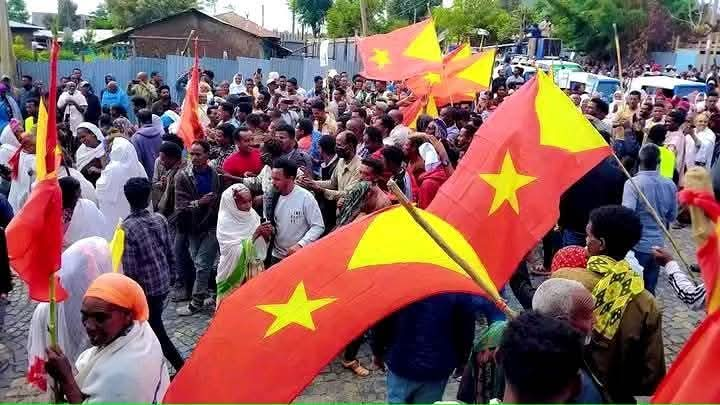
Thousands marched through the streets, chanting slogans denouncing military interference in civil governance and calling for the reinstatement of locally supported leadership. The demonstration marked a pivotal moment in what observers are calling a grassroots uprising against a perceived return to authoritarian rule.
Tensions Erupt Over Militarized Politics
The protests erupted just two days after TPLF-led forces reportedly occupied the office of the Southern Zone administration, removing the civilian leadership in what residents say was an unconstitutional action. By Thursday morning, amid growing unrest and mounting local pressure, soldiers were seen vacating the administrative compound, signaling a rare retreat in the face of unified civilian resistance.
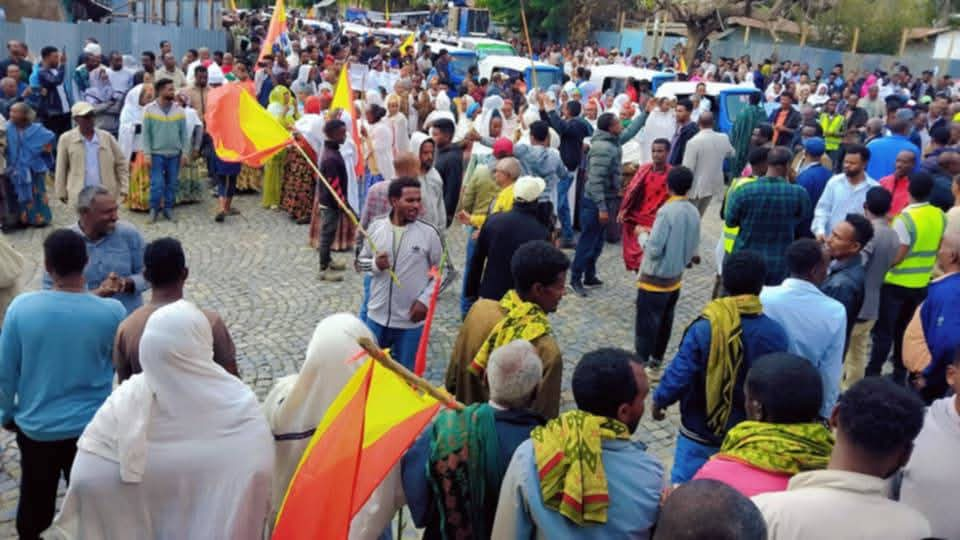
“The office is now free from military control,” said an elder from Maichew. “This is not just about buildings it’s about dignity, identity, and justice for the people of Raya.”
The move comes amid broader regional unease over TPLF’s increasing reliance on military power to enforce political decisions across Tigray. Many now see the reshuffle of Southern Zone leaders as part of a wider strategy to reassert control over strategically important areas, regardless of popular will.
Haftu Kiros Rejects Role Imposed from Above
Haftu Kiros, the recently dismissed administrator of the Southern Zone, has refused a new position offered by the interim government led by Lieutenant General Tadesse Werede. In a video address, Haftu rejected what he called an “arbitrary reshuffle” that undermines the authority of the people and their right to self-governance.
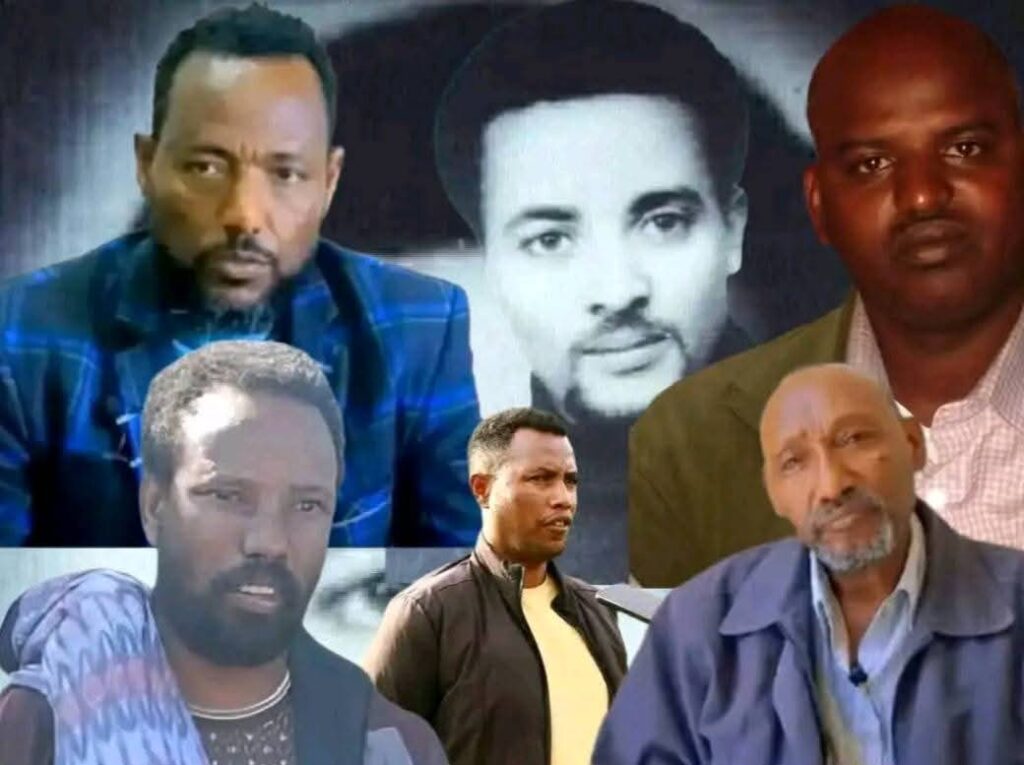
“Any reshuffle that does not originate from the people and their elected voices is illegitimate,” he said. “We will not serve under a regime that rules by force.”
Sources within the local administration suggest the shakeup was never consulted with the communities it impacts. Many accuse the TPLF of abandoning the spirit of the Pretoria Agreement signed in 2022 to end the bloody civil war and reverting to the same authoritarian tactics that sparked the conflict.
Civil Society and Diaspora Groups Raise the Alarm
The controversial move has drawn condemnation from more than a dozen civil society groups and diaspora-based organizations, who released a coordinated statement denouncing the involvement of armed forces in civilian governance. Among them, the Tigrayan Civic Forum based in the United States called for the “immediate demilitarization” of local political processes.
“This is a direct violation of the spirit of peace and self-determination enshrined in Ethiopia’s Constitution and the Pretoria Agreement,” a Forum spokesperson said.
Their call was echoed by human rights advocates and opposition parties, who warned that the reassertion of military authority in the South risks destabilizing the region once again, and could fracture fragile post-war reconciliation efforts.
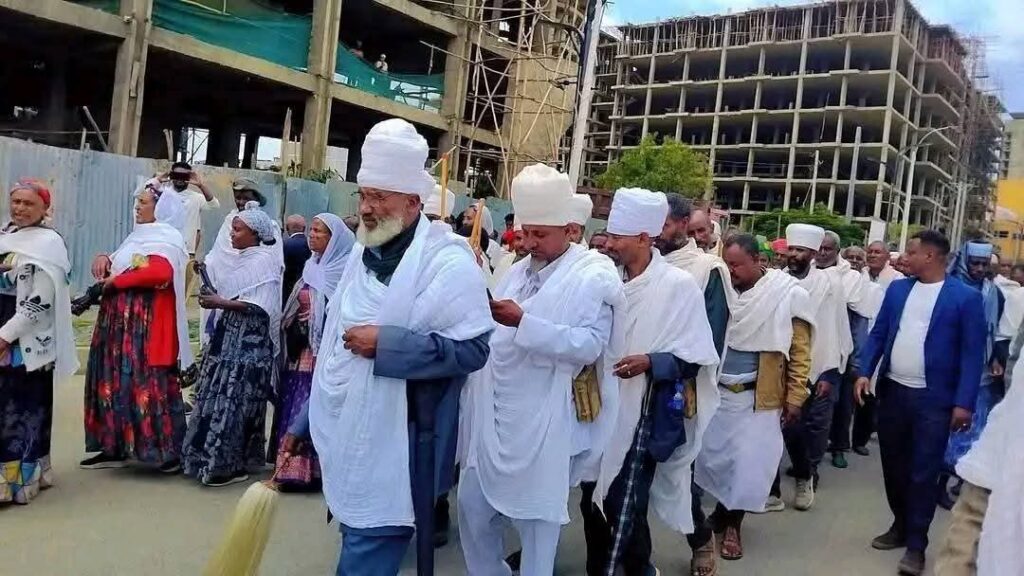
“No More War in Our Name”
Beyond questions of leadership, today’s protests underscored growing public fatigue with renewed war rhetoric from segments of the TPLF hierarchy. Demonstrators carried placards with slogans like “No more war in our name” and “Raya rejects military rule”, making it clear that public appetite for conflict is exhausted.
“We want peace. We want our voices heard, not silenced by guns,” said a protester in Korem.
Similar protests are reportedly being planned in Alamata, Ofla,Bora Chelena, and Chercher in the coming days, as communities across Southern Tigray prepare to make their voices heard.
All Eyes on Maichew
General Tadesse Werede, head of Tigray’s interim administration, is now under growing pressure to face the public directly. Demonstrators in Maichew have called for a public dialogue with the general one in which he listens rather than commands.
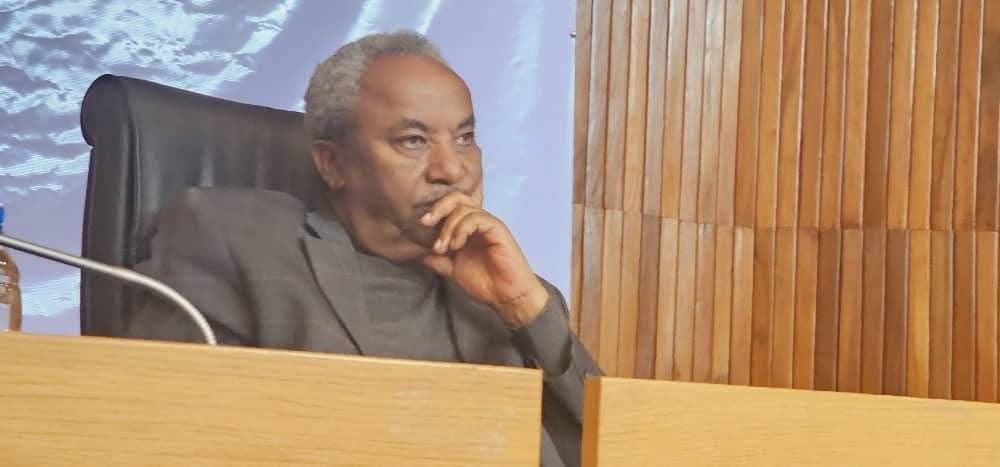
“The people of Raya have spoken with discipline and unity,” said a local youth organizer. “If Tadesse believes in peace and reconciliation, let him come here. Let him listen.”
As crowds continue to swell in Maichew’s town square, one message is clear: Southern Tigray will not be governed through force or decree. The people of Raya, long marginalized and often caught between power centers in Mekelle and Addis Ababa, are demanding something radical in today’s political landscape democracy, dignity, and genuine self-governance.



